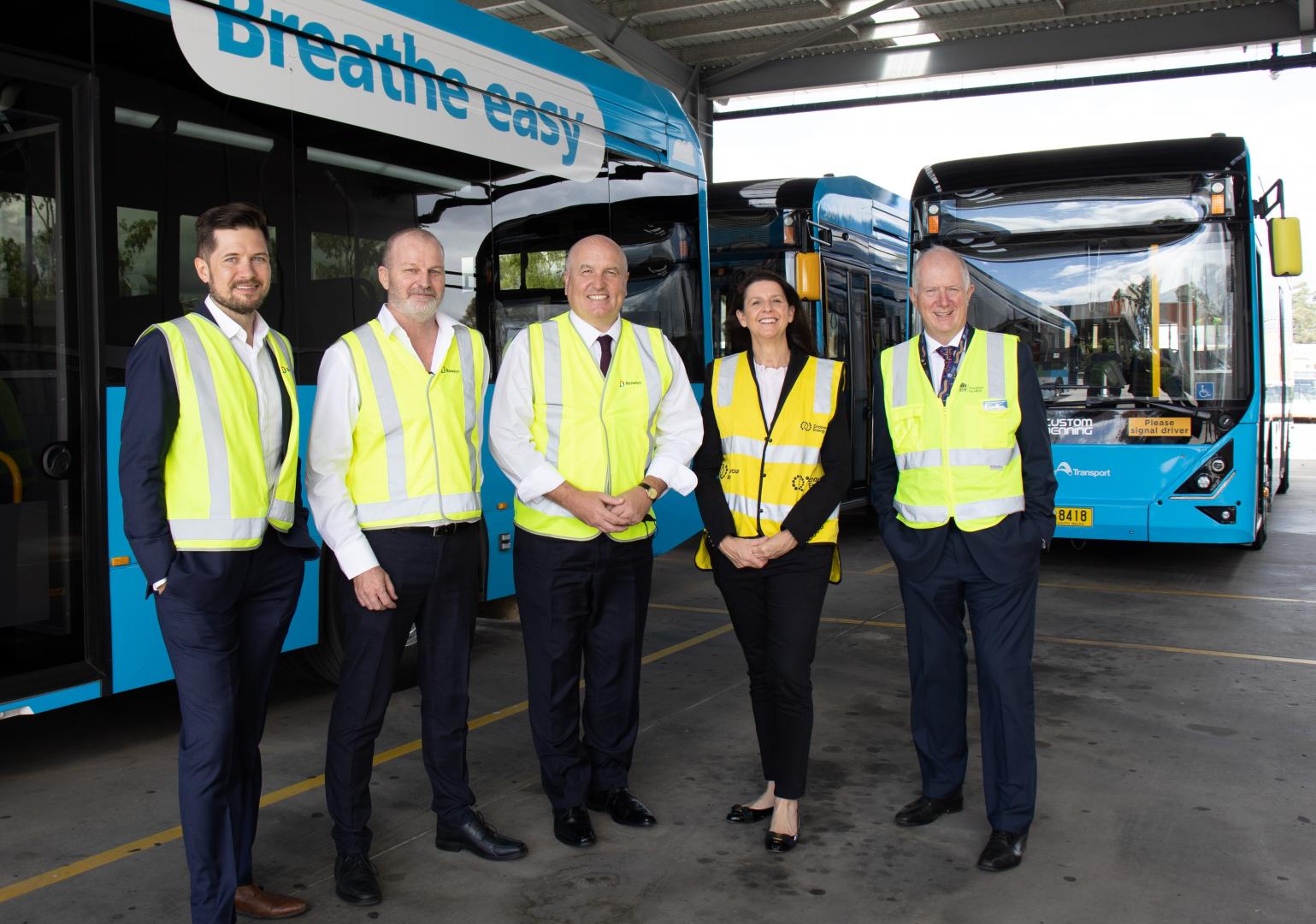World first trial to integrate electric bus charging with grid in Sydney

A world first trial by three Australian companies to better integrate bus depots with the energy market and support the faster rollout of electric buses has gotten underway in western Sydney.
The VEMO project is being undertaken with funding from Transport for NSW’s Zero Emissions Bus program by a cross-industry consortium of Australian companies including bus operator Busways, local software and advisory company Evenergi, and Western Sydney electricity distributor Endeavour Energy.
The software, built by Evenergi to future proof the power supply so it can charge an all electric bus fleet, is being trialled at Busways’ Penrith bus depot with an initial 12 electric buses supplied by NSW bus manufacturer Custom Denning and six ABB Terra charging stations.
The focus is on using Evernegi’s “smart” software that uses real time energy monitoring tooptimise electric bus charging times in tune with grid use, and means that a multi million dollar big battery is not required.
“To completely transition from diesel to electric, we need to work with the energy sector to create a sustainable framework for full depot electrification,” said Byron Rowe, Busways’ managing director.
“Instead of having a multi-million dollar ‘big battery’ onsite, this revolutionary software solution creates a bridge between our bus depot charging infrastructure and the energy retail and distribution markets, to smartly draw down power when grid use is lower, whilst ensuring our buses are always charged for service delivery.”
Evenergi CEO Daniel Hilson said the “world first:” software had helped the company create five Sydney-based tech jobs created for this project. “At full capacity the project will enable us to grow a much larger team right here in NSW and then export the technology to the world.”
Endeavour Energy’s chief customer and strategy officer Leanne Pickering said Busways electric bus depot will have real time visibility of the load on the network so that its new electric buses can be charged outside periods of peak demand.
“This leads to greater utilisation of the electricity network and avoids the need for costly upgrades, keepings downward pressure on the price of electricity for all customers both now and into the future,” said Pickering.
The NSW government has committed to reaching net zero emissions by 2050 and is working to transition its 8,000+ bus fleet to electric over the coming years.
“This smart charging technology will improve the management of our zero emission buses, reduce pressure on the power grid and is a tech solution that could shape up to be an exciting export from NSW to the world,” said transport minister David Elliott.